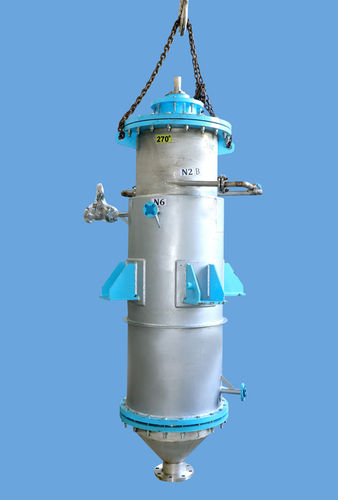हम उन लोगों के एक दल द्वारा समर्थित हैं, जिनके पास
रचनात्मक सोच रखते हैं और बेहतरीन विशेषताओं वाले उत्पादों का निर्माण करते हैं। हर कोई
हमारी कंपनी के कर्मचारी को समान अवसर दिए जाते हैं क्योंकि हम प्रचार नहीं करते हैं
किसी भी आधार पर किसी भी प्रकार का भेदभाव। यह उनकी वजह से है, हम हैं।
अपने प्रतिद्वंद्वियों को कड़ी टक्कर देने और अपने ग्राहकों को बनाने में सक्षम
खुश। हम अपनी पूरी टीम को धन्यवाद देते हैं जो हमेशा एक डिलीवरी देने के लिए तैयार रहती है
उत्कृष्ट श्रेणी।
हम क्यों?
हमारी कंपनी की कुछ विशेषताएं निम्नलिखित हैं जो हमें बाजार में ग्राहकों की प्रमुख पसंद बनाती हैं:
- हम स्ट्रिपर प्लांट, मल्टी इफेक्ट इवेपोरेटर प्लांट, स्प्रे ड्रायर प्लांट आदि जैसे गुणवत्ता वाले उत्पादों के रूप में पैसे के लिए उच्च मूल्य की पेशकश करते हैं।
- हम एक ऐसे कार्य दृष्टिकोण का अनुसरण करते हैं जो सुनियोजित और व्यवस्थित है, जिसे ग्राहकों की अपेक्षाओं को ध्यान में रखते हुए तैयार किया गया है।
- हम बाजार के रुझानों और तकनीकी से अपडेट रहते हैं
प्रगति ताकि हम उसी के अनुसार रेंज प्रदान कर सकें।
- हम हर व्यक्ति के साथ सम्मान और गरिमा के साथ पेश आते हैं, यानी
हमारे साथ जुड़े हुए हैं, चाहे वे हमारे कर्मचारी हों, व्यापार भागीदार हों, ग्राहक हों,
निवेशक, आदि।





 मुझे निःशुल्क कॉल करें
मुझे निःशुल्क कॉल करें
 English
English Spanish
Spanish French
French German
German Italian
Italian Chinese (Simplified)
Chinese (Simplified) Japanese
Japanese Korean
Korean Arabic
Arabic Portuguese
Portuguese